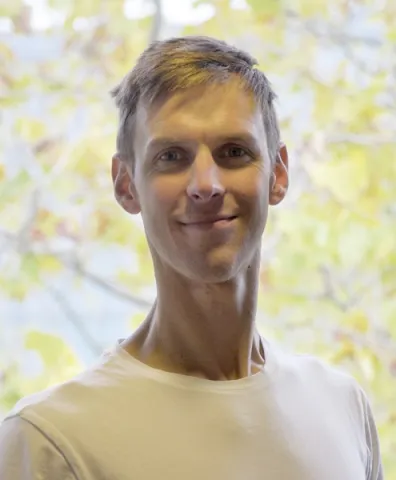Project overview
Physical activity is crucial in managing long-term conditions (LTCs), yet participation levels have declined nationally post-COVID. Southampton has been significantly impacted, with economic crises exacerbating health inequalities (Southampton Data Observatory, 2022). Our NIHR-funded ‘Maintenance Of physical aTivity beHaviour’ (MOTH) programme has improved understanding of how best to support people with LTCs to stay active for better self-management.
Complex inequalities we revealed in physical activity at a ‘system’ (e.g., activity provider) and individual (i.e., public) level. Including fewer opportunities to access evidence-based guidance and infrastructural physical activity (e.g., active transport) for people living in Southampton’s deprived areas.
Where next?
MOTH highlighted two areas for improvement: i) better partnership working, and ii) ensuring LTCs are supported to ‘self-manage’ using community-based physical activity. Consequently, we have commissioned an organisational change specialist, Move Consulting, to develop an evaluation framework of physical activity pathways for people with LTCs. This will lay foundations for a ‘roadmap’ and follow-on funding bid (e.g., NIHR Research for Patient Benefit) for a large-scale evaluation across Southampton. We have begun engaging stakeholders, including the communities most socio-economically impacted by COVID-19.
What is missing?
Move’s framework will allow us to identify enablers (and barriers) for physical activity, and highlight key approaches to working with stakeholders across Southampton. This will include the challenges and needs of the providers and individuals relating to (in)access to physical activity. Your funding will add impact to our framework, by:
i. Piloting a series of community cafes across socio-economic areas of Southampton, to inform and engage public with LTCs in staying active.
ii. Convening ‘roundtable’ meetings to evaluate pilot cafes, review the framework, and begin consortium building (with local public and decision-makers).
iii. Working with community partners to engage hard-to-reach individuals/groups through knowledge exchange in non-traditional environments.
Funding will support:
1. Ten ‘Active Living’ cafes for people with LTCs across Southampton.
2. Two ‘roundtable’ meetings involving public (i.e., people with LTCs), community providers (e.g., Abri), decision-makers (e.g., Southampton City Council), and Move Consulting.
Each 2-hour café will involve ‘lessons learnt’ from MOTH, then open forum to hear ‘how’, and ‘where’, people with LTCs would like support in staying active in their communities. Feedback will be sought from attendees and organisers regarding community cafes as a public engagement method for follow-on projects.
Cafes will be located across the socio-economic strata of Southampton (informed by Southampton Data Observatory), including co-applicant wards: Swaythling (Abri’s RoundAbout Café); Bitterne/Woolston (Active Nation); St Mary’s (Saints Foundation); Thornhill (Thornhill Church). Cafes will be advertised via host organiser(s) networks, Southampton City Council, and the Physical Activity Alliance.
Roundtable meetings will conclude the project, with academics, public and community partners:
1. Reviewing the findings from the MOTH project to identify key themes for follow-on project(s).
2. Discussing feedback on the pilot cafes and the evaluation framework (drafted by Move Consultancy)
3. Engaging with strategic stakeholders (e.g., Southampton City Council) to share insights and identify potential partnerships for follow-on research and policy.
4. Co-producing a draft bid for the follow-on evaluation of physical activity for LTCs across Southampton.
Complex inequalities we revealed in physical activity at a ‘system’ (e.g., activity provider) and individual (i.e., public) level. Including fewer opportunities to access evidence-based guidance and infrastructural physical activity (e.g., active transport) for people living in Southampton’s deprived areas.
Where next?
MOTH highlighted two areas for improvement: i) better partnership working, and ii) ensuring LTCs are supported to ‘self-manage’ using community-based physical activity. Consequently, we have commissioned an organisational change specialist, Move Consulting, to develop an evaluation framework of physical activity pathways for people with LTCs. This will lay foundations for a ‘roadmap’ and follow-on funding bid (e.g., NIHR Research for Patient Benefit) for a large-scale evaluation across Southampton. We have begun engaging stakeholders, including the communities most socio-economically impacted by COVID-19.
What is missing?
Move’s framework will allow us to identify enablers (and barriers) for physical activity, and highlight key approaches to working with stakeholders across Southampton. This will include the challenges and needs of the providers and individuals relating to (in)access to physical activity. Your funding will add impact to our framework, by:
i. Piloting a series of community cafes across socio-economic areas of Southampton, to inform and engage public with LTCs in staying active.
ii. Convening ‘roundtable’ meetings to evaluate pilot cafes, review the framework, and begin consortium building (with local public and decision-makers).
iii. Working with community partners to engage hard-to-reach individuals/groups through knowledge exchange in non-traditional environments.
Funding will support:
1. Ten ‘Active Living’ cafes for people with LTCs across Southampton.
2. Two ‘roundtable’ meetings involving public (i.e., people with LTCs), community providers (e.g., Abri), decision-makers (e.g., Southampton City Council), and Move Consulting.
Each 2-hour café will involve ‘lessons learnt’ from MOTH, then open forum to hear ‘how’, and ‘where’, people with LTCs would like support in staying active in their communities. Feedback will be sought from attendees and organisers regarding community cafes as a public engagement method for follow-on projects.
Cafes will be located across the socio-economic strata of Southampton (informed by Southampton Data Observatory), including co-applicant wards: Swaythling (Abri’s RoundAbout Café); Bitterne/Woolston (Active Nation); St Mary’s (Saints Foundation); Thornhill (Thornhill Church). Cafes will be advertised via host organiser(s) networks, Southampton City Council, and the Physical Activity Alliance.
Roundtable meetings will conclude the project, with academics, public and community partners:
1. Reviewing the findings from the MOTH project to identify key themes for follow-on project(s).
2. Discussing feedback on the pilot cafes and the evaluation framework (drafted by Move Consultancy)
3. Engaging with strategic stakeholders (e.g., Southampton City Council) to share insights and identify potential partnerships for follow-on research and policy.
4. Co-producing a draft bid for the follow-on evaluation of physical activity for LTCs across Southampton.
